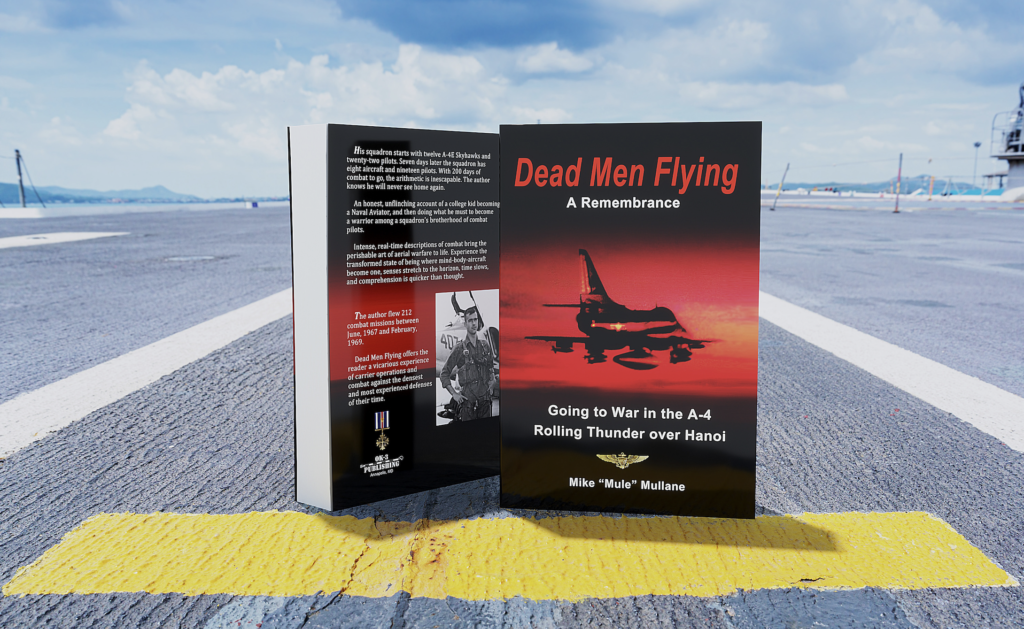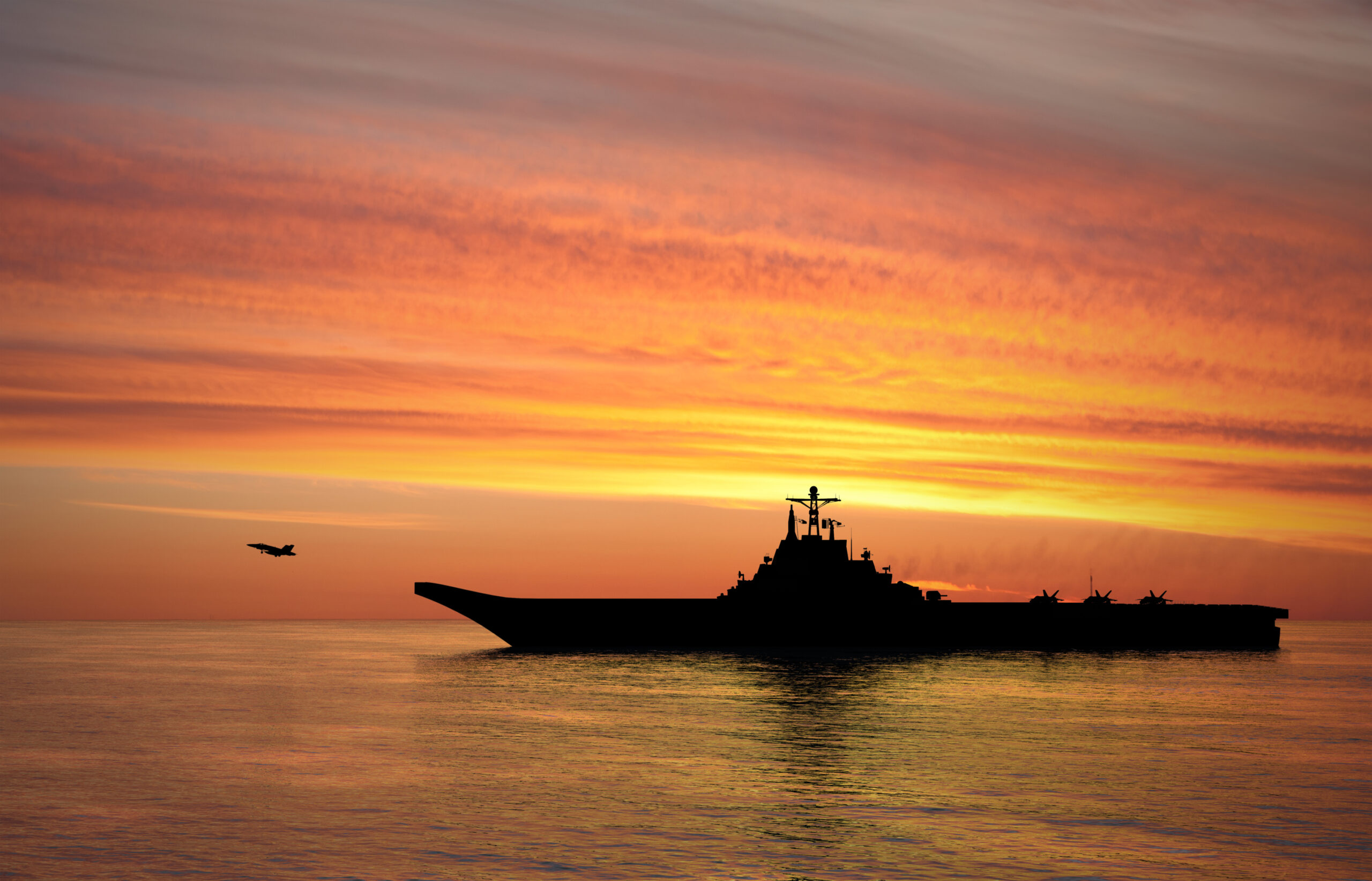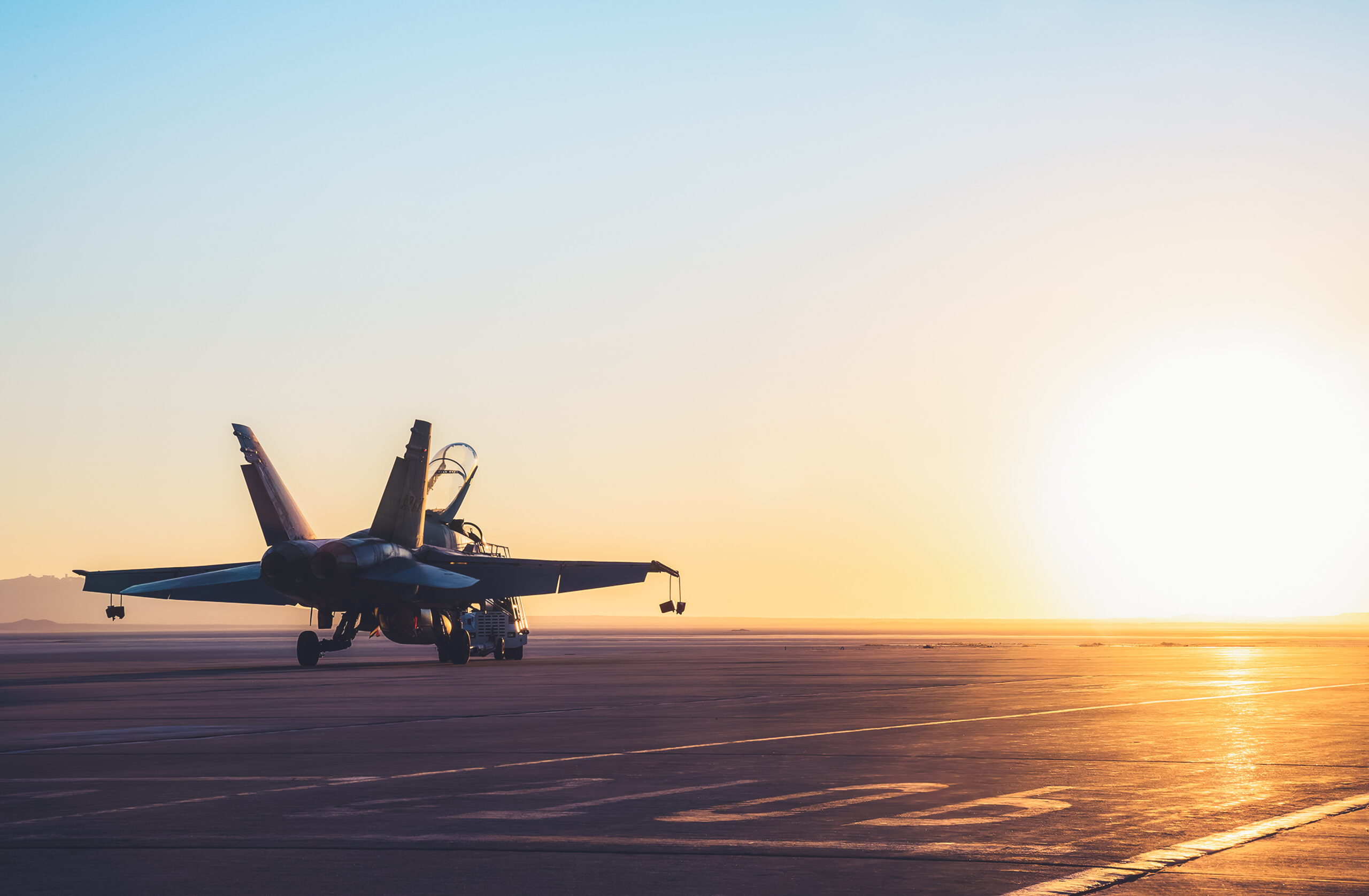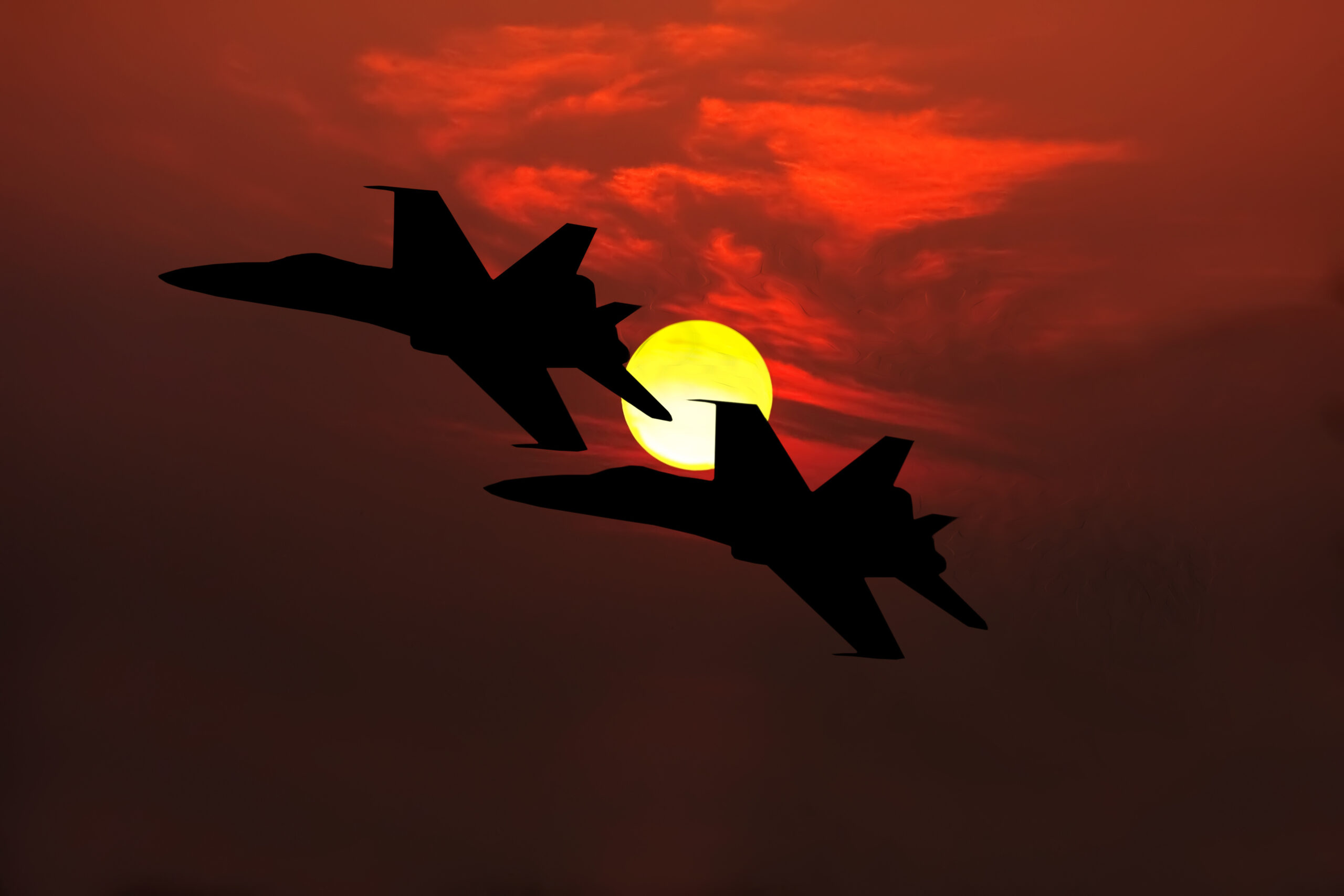#1 BEST SELLER!
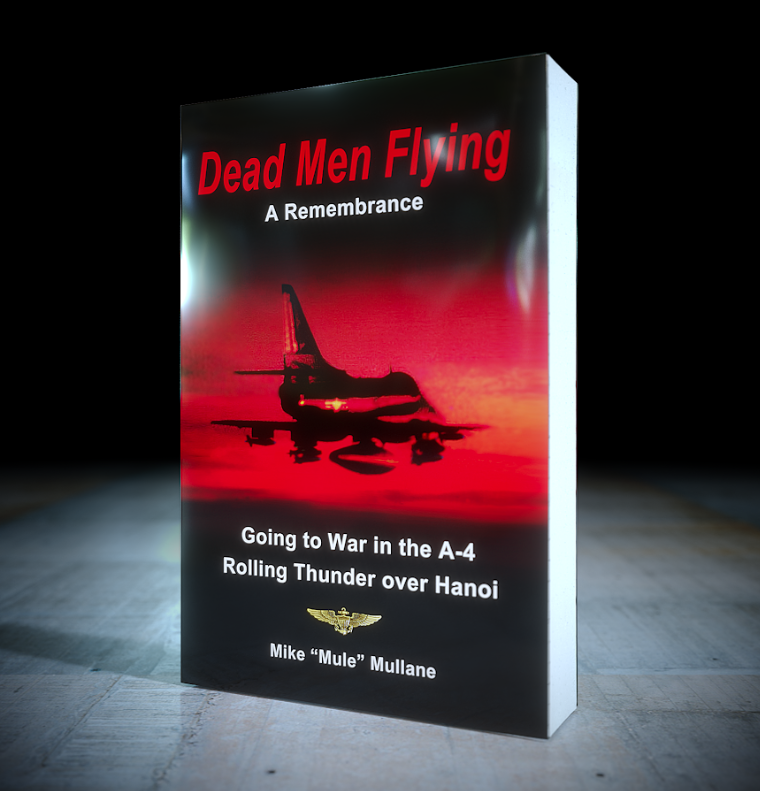
Stephen Coonts - author with 16 NY Times Best Sellers - calls Dead Men Flying a "masterpiece"!
-
“This personal "Remembrance" stands head and shoulders above all those that I have read, which is a bunch."
-
“You will look for a better account and not find it. Superb!”
-
“Inspirational!”
-
“Amazing!!!”
-
“Inspiring, and fearlessly honest.”
-
“Excellent writing”
-
"Fantastic page turner of aerial combat over Vietnam, brotherhood and dealing with PTSD. Highly recommend!"
-
"A Riveting Read!"
-
"PAGE TURNER of a book"
-
"One of the best books I've read in a long time."
Dead Men Flying: A rememberance. Going to War in the A-4 - Rolling Thunder over Hanoi
By Mike "Mule" Mullane
None of us will survive.
The arithmetic was inescapable. The squadron started with twelve A-4E Skyhawks and twenty-two pilots. After seven days, it had eight aircraft and nineteen pilots. He had over two hundred days to go. He would never see home again.
Dead Men Flying is an honest, unflinching account of how Mike, the college kid, became a warrior called “Mule.” It tells of his struggles to become a Naval Aviator. He masters the skills necessary to launch and land a jet fighter bomber on an aircraft carrier. He experiences the transforming state of being when his aircraft merges with his body and becomes an extension of his will; a place where time slows to a crawl; sensory awareness extends to the horizon; and thoughts flash faster than the flick of an eyelid. Within the squadron he develops the bonds of brotherhood that are forged when the pilots must trust each other with their lives. Flying mission after mission into the heart of the North Vietnamese defenses, he pays the cost when death shatters those bonds.
The descriptions of combat are immediate and immersive. They envelop the reader in the perishable art of aerial warfare, a ballet performed out of sight and mind of all but the few who were there. The descriptions are enhanced with more than seventy photographs, many taken during combat.
Dead Men Flying is the story of men tested to the breaking point and beyond by unrelenting threat and losses. It tells how they stood together with unflinching resilience, courage, devotion, and sacrifice.
The author flew 212 combat missions with the Ghost Riders of Attack Squadron 164 over two cruises between June, 1967 and February, 1969.


Reviews
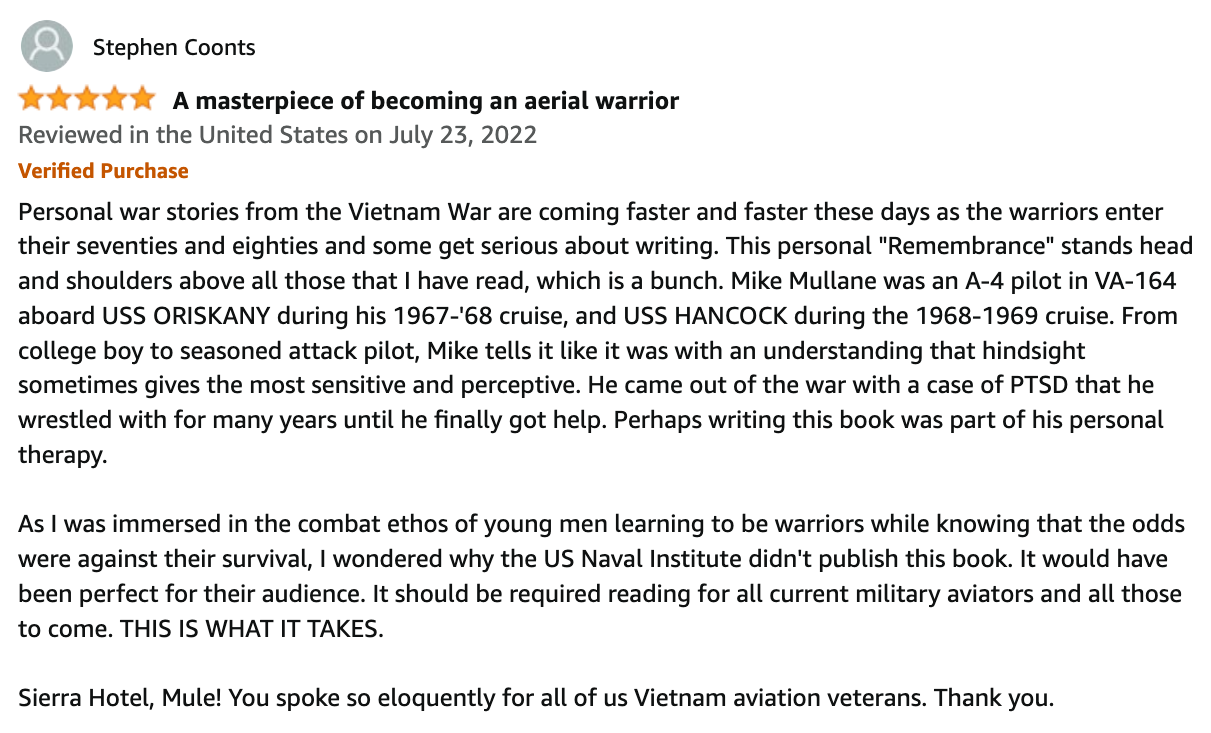
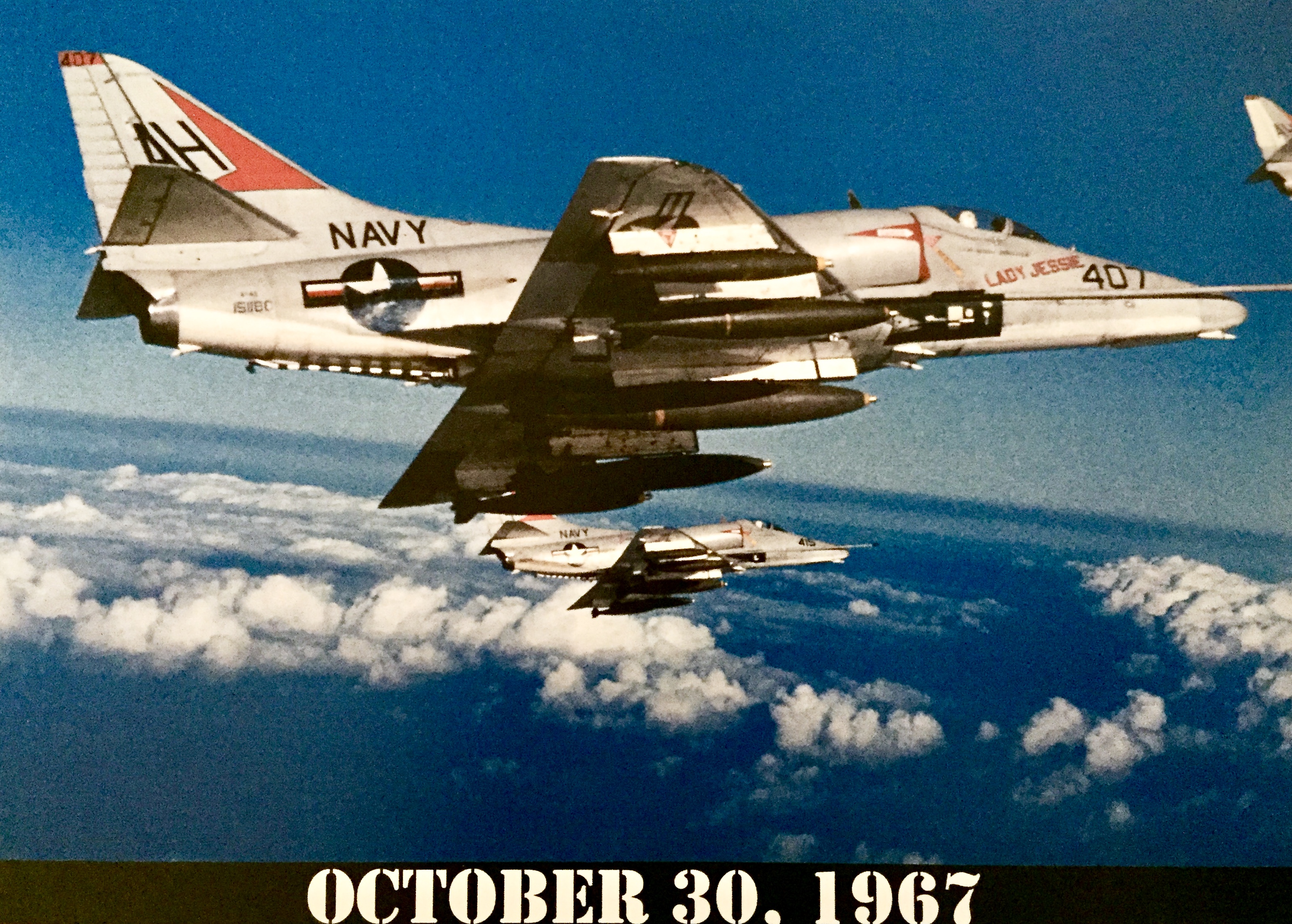
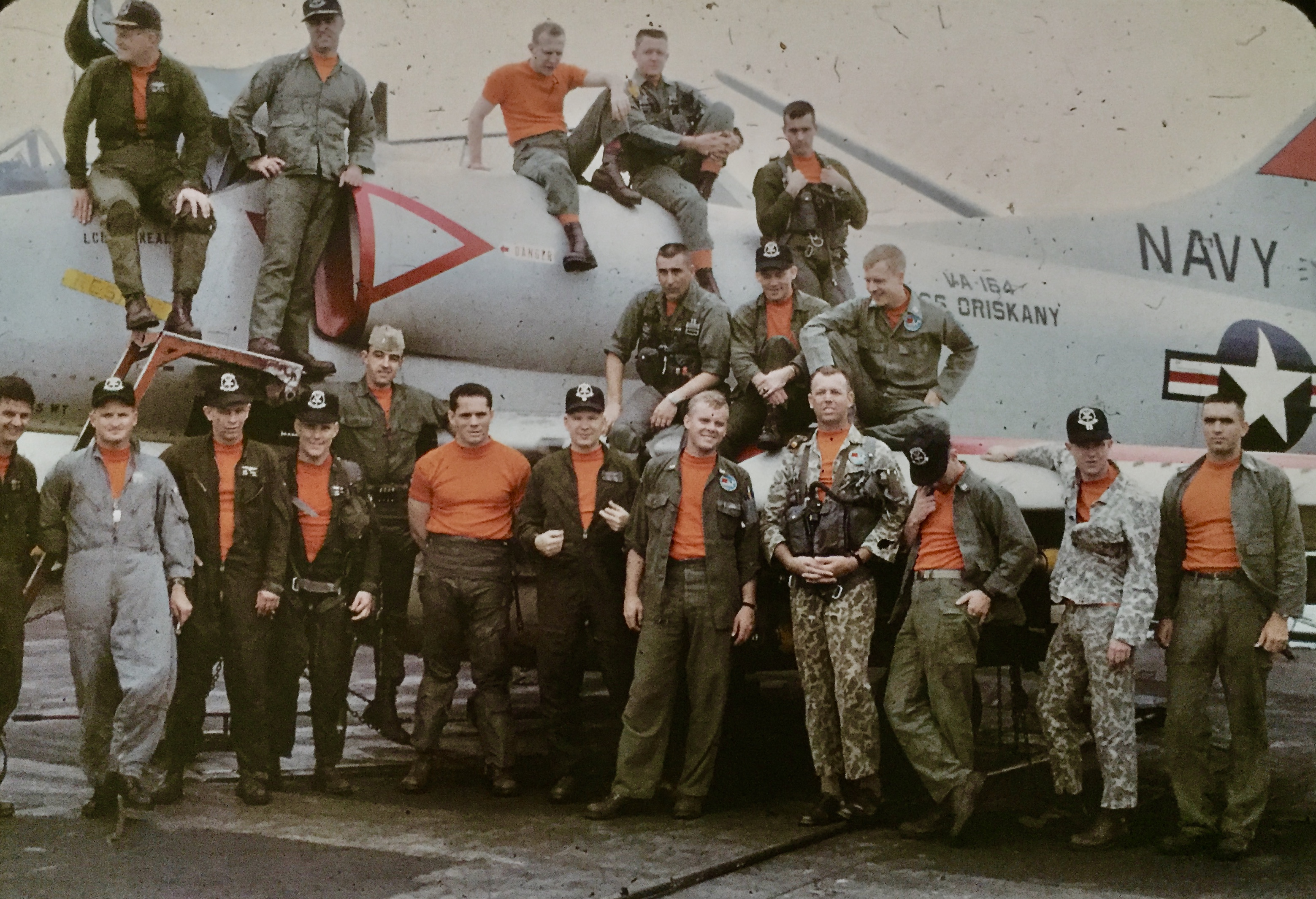
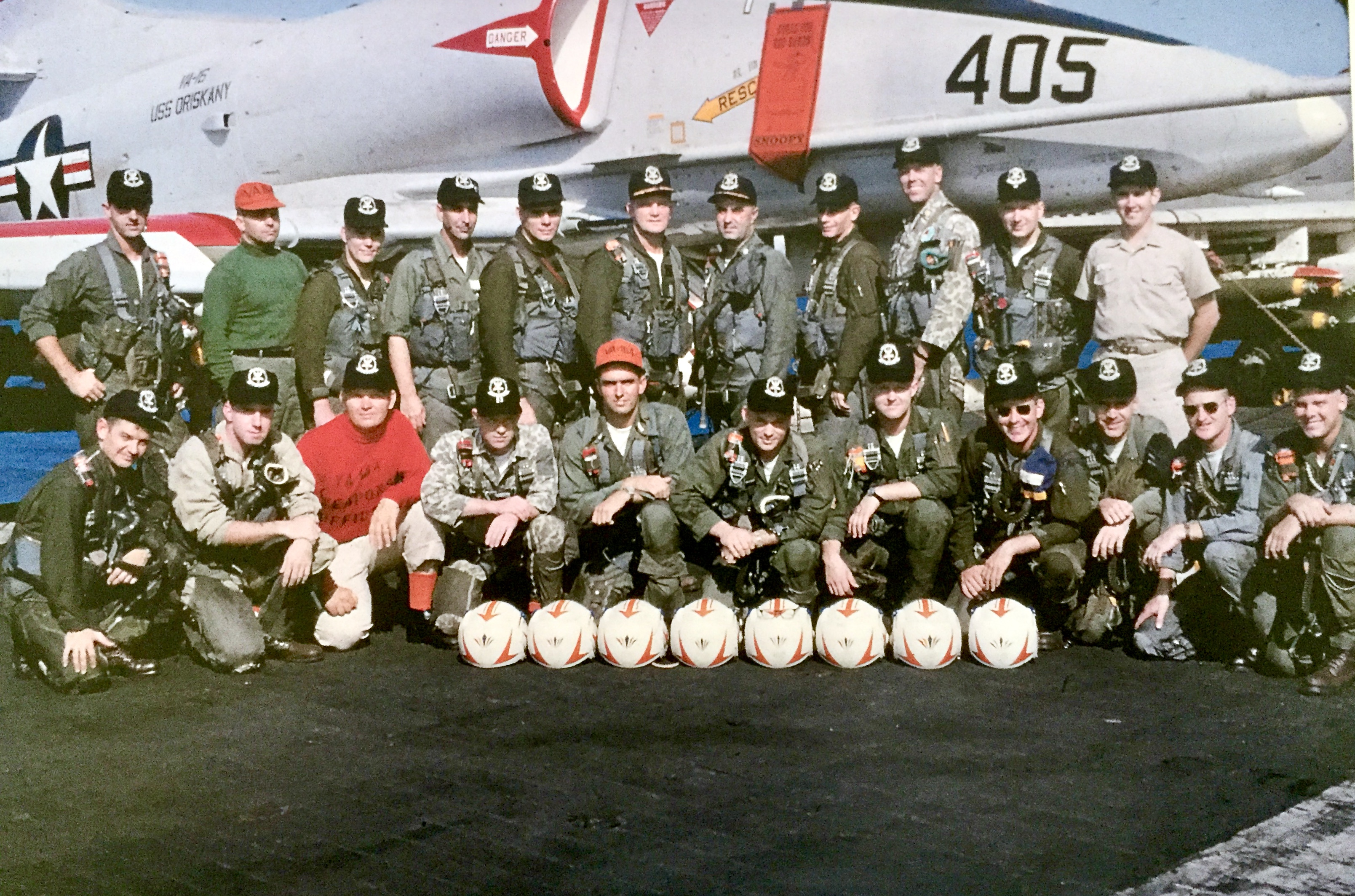
Lady Jesse
Crew on the USS Oriskany
Crew on the USS Oriskany
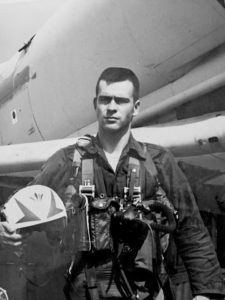
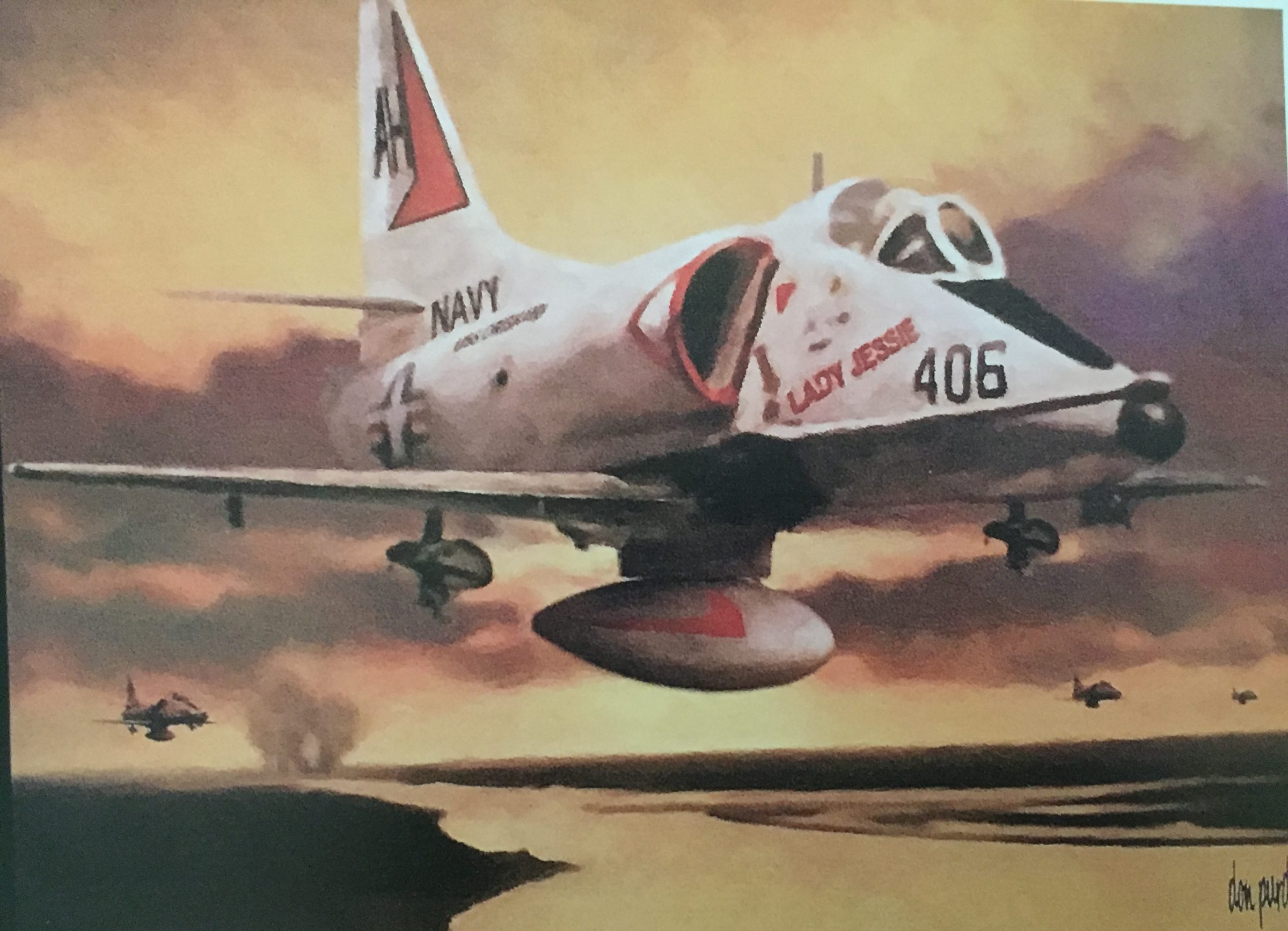
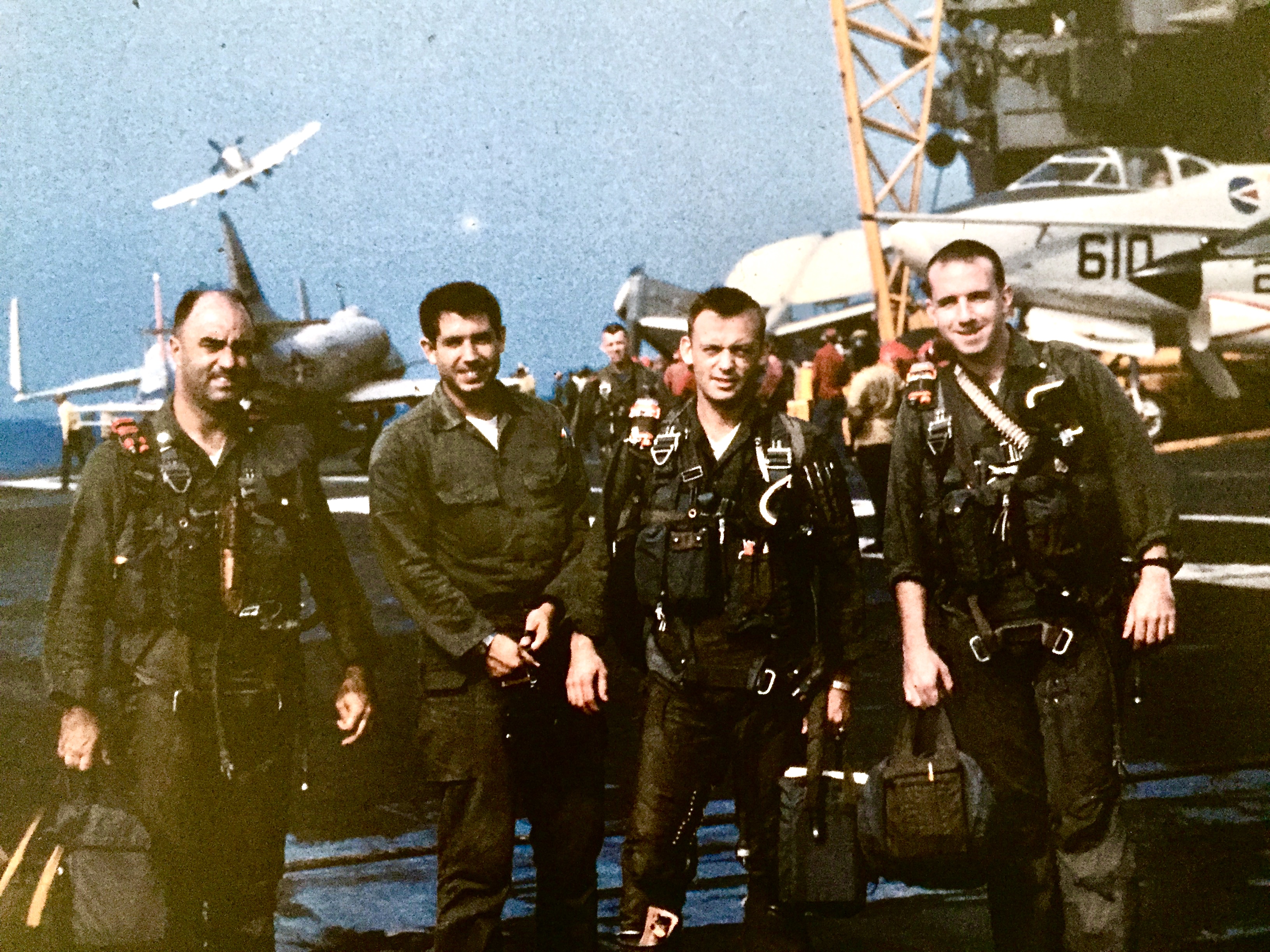
Introduction
This book is a remembrance of war. I wrote it so that I would remember what I tried to forget, and in the hope the men I flew with and what they endured will find a place in your memory.
Many have noted that everyone’s war is limited to what they can see from their foxhole. My foxhole was the cockpit, but the point is no less valid. At its most granular, there are many wars as there are survivors to remember.
It is also true that combatants do not fight for God, mother, or country. They fight for those who share their foxhole. As individual as our memories are, the experience of threat, exhilaration, fear, brotherhood, and loss are shared by all combat veterans combat regardless of their unit, battle, or war. These things are what bind us together and set us apart.
Memories are tricky things. Our brains are not video recorders. Our memories are subject to the distractions, avoidances, and emotional overlays of the moment. Up to a certain point, the more exciting the experience, the more indelible its memory. Past that point, the brain refuses to remember.
Old memories are also subject to the erosion, needs, and accretions of decades. Some of my memories of combat are as vivid today as they were in the 1960s. A few, the “safe stories”, the stories I could tell, were inevitably refurbished in the retellings. Most things, however, I could not, would not remember.
I have done my level best to strip away the polish of stories retold, and to unearth the unremembered and suppressed. I have tried to recount as honestly as I can what I and my combat brothers experience in the moment.
Although Dead Men Flying is primarily a memoir of the war from my cockpit, I am privileged to include firsthand accounts by several of my combat brothers. I am, however, solely responsible for the context and cognitive interpretations in which they are in bedded.
Mike "Mule" Mullane, Author
